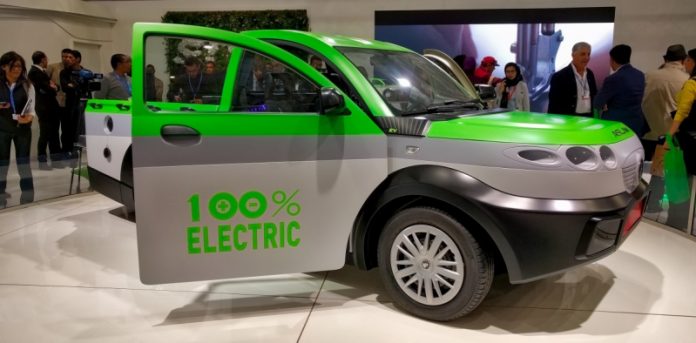Ryad Mezzour, Morocco’s Minister of Industry and Trade, has announced that the country’s electric car production capacity iis expected to rise to 100,000 vehicles per year in two to three years, doubling current production. “This goal can be achieved with current industrial capacities, without taking into account future foreign investments,” Mezzour said, according to Asharq Business.
The automotive industry is Morocco’s second largest sector. At the end of July, the industry had a turnover of around $5.6 billion, according to the Arab media. The Kingdom is also home to Renault and Stallantis factories that produce around 700,000 cars annually, of which 50,000 are electric.
Most of the vehicles produced in Morocco are exported abroad, especially to EU countries, where it was recently agreed to ban the sale of internal combustion engine cars from 2035. The Moroccan automotive industry expects to reach an annual production capacity of about one million electric cars in the coming years. To do so, it will need to secure the supply of batteries, which is essential for this type of vehicle. To this end, the Ministry of Industry and Trade announced last July that it was negotiating with battery manufacturers to build a factory before the end of 2022.
This facility will provide a major boost to the automotive sector and facilitate the shift towards electric cars to reduce carbon emissions. Morocco is committed to this project, not only because of the benefits to be gained, but also because of its reserves of cobalt, an essential element for the manufacture of electric batteries.
The Kingdom, which has been extracting cobalt since 1930, is one of the five largest producers of this material worldwide, according to data from the company Managem collected by Asharq Business. The company is also involved in the production of electric cars, as in June it signed an agreement with Renault whereby the French company will buy cobalt sulphate for the production of batteries.
Another company of note in this area is the French-Italian company STMicroelectronics, which specialises in the manufacture of electronic products and semiconductors. This summer it inaugurated a new production line at its Bouskoura plant dedicated to elements used in electric cars, including next-generation chips.
Despite efforts to boost electric cars, electric cars do not account for more than 4% of total car sales in Morocco. During the first half of the year, 83,831 electric cars were sold, according to Asharq Business. Minister Mezzour confirms this and attributes this phenomenon to the weak charging infrastructure. The government is therefore devising a plan to strengthen charging points in order to boost demand for electric vehicles, Mezzour told the media.
Adel Bennani, head of the Moroccan Association of Car Importers, also attributes the low demand for electric cars to the lack of awareness campaigns by the government.




